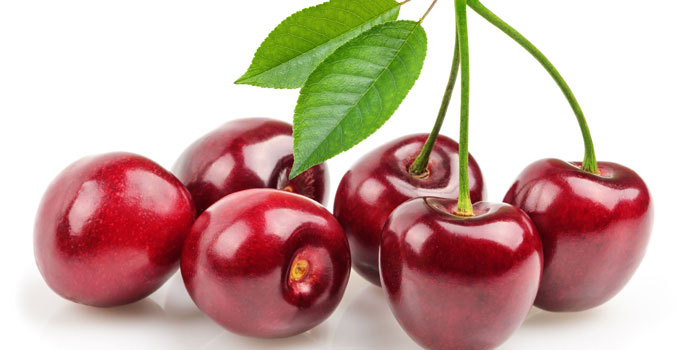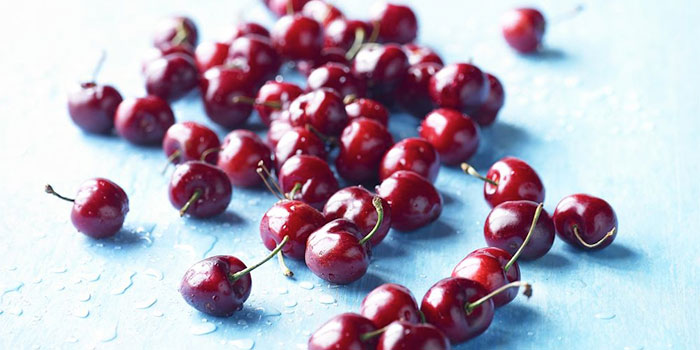
Cherries are small, round, deep red stone fruit that are typically in season in the UK from around June to July. Depending on the variety, of which there are hundreds, their size and flavour can vary but usually fall into one of two categories: sweet or tart (sour). Sweet cherries are usually eaten as they come, while tart cherries are used more in cooking. The more familiar cherry varieties include the black stone cherry, morello and Spanish cherry. All cherries have a stone in the middle which must be removed before eating or cooking.
Nutritional benefits of cherries
Cherries are a good source of fibre, vitamins and minerals, including potassium, calcium, vitamin A and folic acid. They are also well known for their antioxidant properties. A portion of 14 cherries counts as one of your five-a-day.
Can cherries reduce inflammation?
Antioxidants are vital for good health as they protect our cells from damage caused by oxidants, or free radicals. Cherries contain antioxidants known as anthocyanins and cyanidin which may have anti-inflammatory effects and initial research has shown that these antioxidants could be beneficial in inflammatory conditions such as arthritis, although more research is needed to replicate these results in human studies.
Can cherries reduce blood pressure?
Research by the British Journal of Nutrition found that cherry juice may help reduce blood pressure due to its high polyphenol content.

Can cherries speed up recovery after exercise?
There has been a fair amount of research over the years into cherries, and specifically tart cherries, and the role they can play in exercise and exercise recovery. Research by the Journal of the International Society of Sports Nutrition found that drinking tart cherry juice for seven days before and during a strenuous running event minimised post-run muscle pain. Another small study found that tart cherry juice appears to aid recovery and muscle function after strenuous exercise.
Can cherries improve sleep?
Tart cherries contain high concentrations of key phytochemicals including melatonin which is involved in the regulation of our sleep cycles. There has been slightly mixed research as to whether cherries, and specifically cherry juice, is of benefit to those who have trouble sleeping but the signs are encouraging. Research by the European Journal of Nutrition found that tart cherry juice is beneficial in improving sleep both in quality and duration, and may be of benefit to those who have disturbed sleep, whilst another small study suggests that cherry juice may be beneficial to those with insomnia.
Can cherries help those with gout?
There has been some research into the effects of cherry juice on gout. One study demonstrated that consuming cherries and cherry juice over a two-day period is associated with a lower risk of gout attacks while another study suggests that cherry juice needs to be consumed for at least four months to reduce acute attacks. Further research suggests that drinking cherry juice lowers the blood uric acid levels (which can trigger an attack of gout) in healthy volunteers. However, as the NHS points out, these results have not yet been replicated in a large-scale study involving participants with gout. Currently, more research needs to be carried out before we can say that cherry juice prevents or eases gout.

